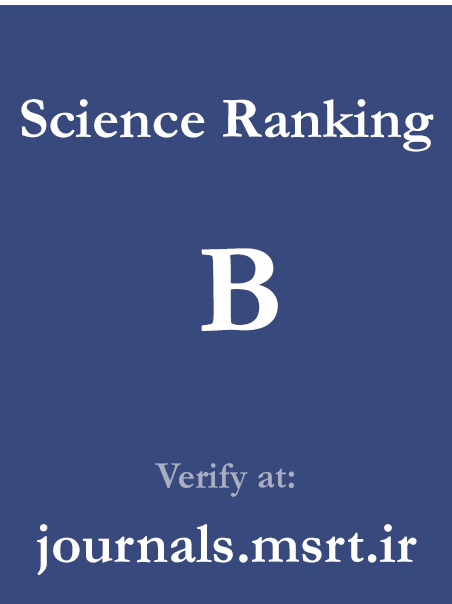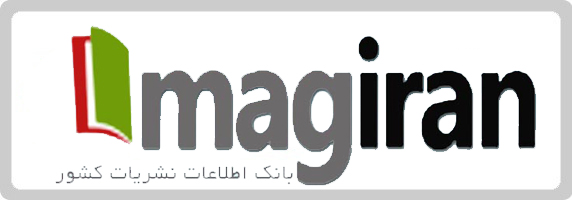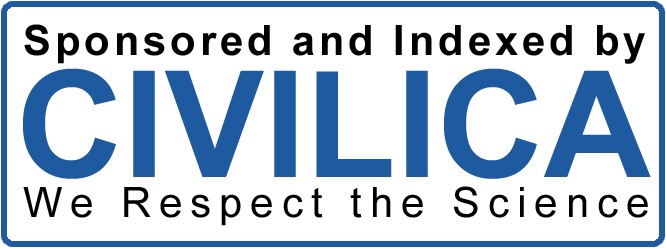Validation of a Professional Development Model for Academic Department Heads in Universities Based on Individual Coaching Approaches
Keywords:
Professional development, individual coaching, academic leadership, department heads, higher education, confirmatory factor analysis, mixed-methods research.Abstract
This study aimed to design and validate a professional development model for academic department heads in Iranian universities based on individual coaching approaches. A mixed-methods exploratory design was employed, combining qualitative and quantitative methodologies. In the qualitative phase, semi-structured interviews were conducted with 14 academic experts selected through purposive sampling, and data were analyzed using grounded theory coding (open, axial, and selective coding). In the quantitative phase, a researcher-developed questionnaire based on the qualitative findings was distributed to a sample of 252 academic department heads using simple random sampling. Confirmatory factor analysis (CFA) was performed using PLS-SEM to assess the structural validity of the proposed model, alongside model fit indices including SRMR, RMS Theta, R², and f² values. Confirmatory factor analysis demonstrated strong and statistically significant factor loadings across all six components of the model—causal conditions, contextual conditions, intervening conditions, core phenomenon, strategies, and consequences. SRMR and RMS Theta values confirmed acceptable model fit across all components. R² values ranged from moderate to high (0.472 to 0.831), indicating substantial explanatory power, while f² effect sizes confirmed that most constructs had large or very large influence on their respective outcomes. Among all components, the consequences and core phenomenon dimensions showed the highest predictive validity, particularly in improving managerial competencies, fostering motivation, and enhancing organizational learning. The findings validate the proposed individual coaching-based model as an effective framework for the professional development of department heads in higher education. The model is theoretically grounded, empirically supported, and practically applicable, offering universities a structured path toward leadership capacity building. Its implementation could contribute significantly to institutional improvement, faculty engagement, and sustainable academic governance.
Downloads
References
1. Horváth Z, Wilder RS, Guthmiller JM. The Power of Coaching: Developing Leaders and Beyond. Journal of Dental Education. 2024;88(S1):671-7. doi: 10.1002/jdd.13535.
2. Ward CL, Reneau CM. Holistic Coaching in Higher Education. 2021:162-80. doi: 10.4018/978-1-7998-4246-0.ch008.
3. Lim SM, Patel NS, Shahdadpuri R. Coaching Students in Higher Education. 2024. doi: 10.4324/9781003332176.
4. Lim SM, Patel NS. Coaching in Higher Education. 2024:3-17. doi: 10.4324/9781003332176-2.
5. Shohel MMC, Ashrafuzzaman M, Mahmud A, Islam MT, Alam AS. Coaching Applications and Effectiveness in Teaching and Learning in Higher Education. 2021:21-47. doi: 10.4018/978-1-7998-4246-0.ch002.
6. Woodcock C. Executive Function Coaching in Higher Education. 2024. doi: 10.3102/ip.24.2092116.
7. Hunaiti Z. Introducing Coaching to Higher Education. 2021:1-20. doi: 10.4018/978-1-7998-4246-0.ch001.
8. Filatova O, Barabashkina EV, Komkova A. Coaching in an Educational Organization. The Tidings of the Baltic State Fishing Fleet Academy Psychological and Pedagogical Sciences (Theory and Methods of Professional Education). 2024(3(69)):212-4. doi: 10.46845/2071-5331-2024-3-69-212-214.
9. Mohammadisadr M, Siadat SA, Hoveidā R. Identification and Validation of Coaching Skill Components Among Faculty Members of Universities. Educação E Pesquisa. 2018;44(0). doi: 10.1590/s1678-4634201844185441.
10. Abdollahi B, Sadin Aa, NavehebSrahim a, abassiyan h. Designing a professional development model for faculty at Farhangian University with a grounded theoretical approach and a mixed exploratory paradigm. ieaajournal. 2022;11(2):41-83. doi: 10.52547/meo.11.2.41.
11. Bilal, Guraya SY, Chen S. The impact and effectiveness of faculty development program in fostering the faculty’s knowledge, skills, and professional competence: A systematic review and meta-analysis. Saudi Journal of Biological Sciences. 2019;26(4):688-97.
12. Guilbaud TC, Martin F, Newton XA. Faculty Perceptions on Accessibility in Online Learning: Knowledge, Practice and Professional Development. Online Learning. 2021;25(2). doi: 10.24059/olj.v25i2.2233.
13. Takei H, Anthony PJ, Fountain E, Williams L. Empirical Development of the Best Practices of Coaching and Mentoring for High Performance of Competency-Based Education. International Research in Education. 2022;10(1):1. doi: 10.5296/ire.v10i1.19393.
14. Savchuk B, Султанова Н, Bilavych H, Pantyuk T. Two-Tier Model Оf Training Future Teachers for Coaching at Out-of-School Institutions. Pedagogika-Pedagogy. 2022:177-95. doi: 10.53656/ped2022-2.03.
15. Dzikovska M. Coaching as the Pedagogical Technology in Professional Training of Future Specialists. Continuing Professional Education Theory and Practice. 2019(3):45-50. doi: 10.28925/1609-8595.2019.3.4550.
16. Ismatova MS. Development of Coaching Technologies in the Educational Space of the University. Current Research Journal of Pedagogics. 2021;02(05):134-41. doi: 10.37547/pedagogics-crjp-02-05-25.
17. Hejazi A. Determining the components of professional development of faculty members of Farhangian University. Research in Teacher Education (RTE). 2020;3(1):41-61.
18. Thomson B. Coaching in Higher Education: A Case Study. 2018:205-14. doi: 10.4324/9780429473036-13.
19. Pisklova MV, Bekoeva M. Technology of Pedagogical Coaching as a Basic Model of Supporting the Personal Development of Students. SHS Web of Conferences. 2021;121:02001. doi: 10.1051/shsconf/202112102001.
20. Buberwa E, Nzulwa J, Kamaara M. Effect of Employee Coaching Practices on Universities’ Performance in Tanzania. Science Mundi. 2024;4(1):63-71. doi: 10.51867/scimundi.4.1.6.
Downloads
Published
Submitted
Revised
Accepted
Issue
Section
License
Copyright (c) 2025 Ali Khalili (Author); Zarrin Daneshvar Heris; Behnam Talebi (Author)

This work is licensed under a Creative Commons Attribution-NonCommercial 4.0 International License.



